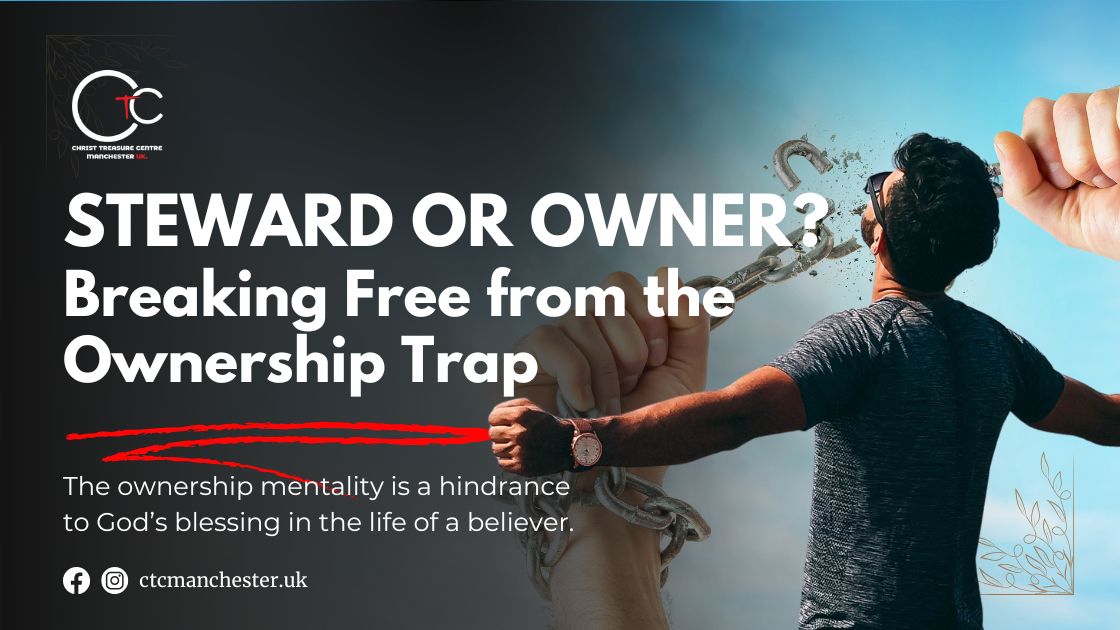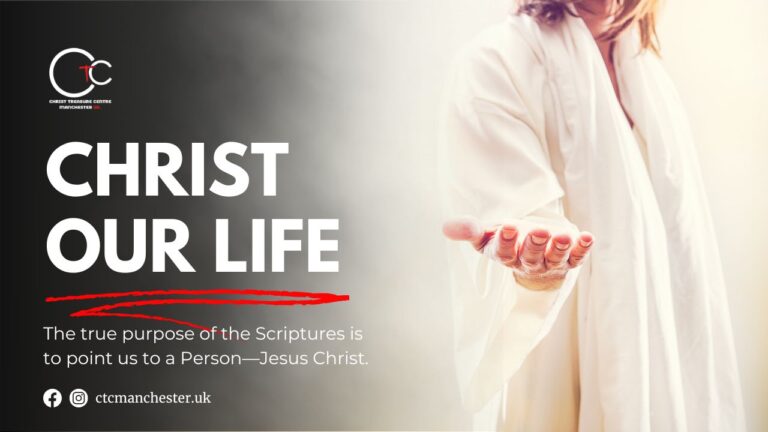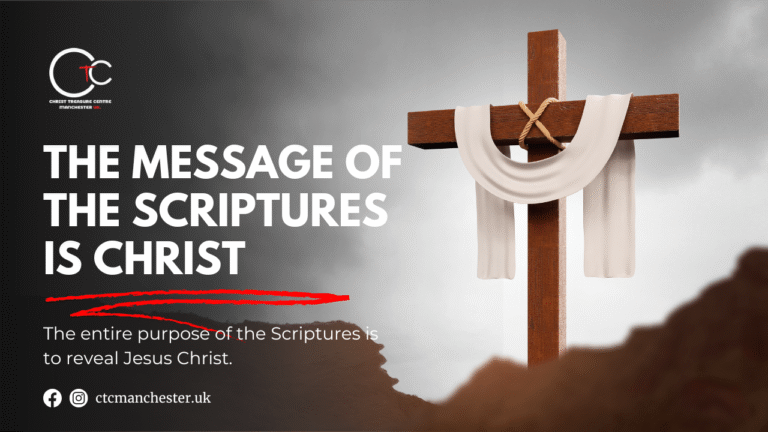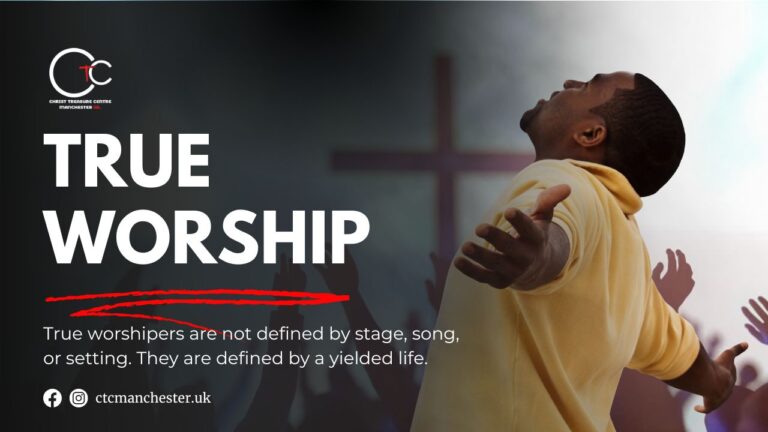“As a man thinketh in his heart, so is he.” – Proverbs 23:7
One of the greatest hindrances to true Christian stewardship is a wrong mindset—specifically, the ownership mindset. Until we address this issue internally, faithfulness as a steward becomes a struggle.
1 Corinthians 4:2 (NLT) states: Now, a person who is put in charge as a manager must be faithful.
Faithfulness is a key expectation for anyone entrusted with responsibility, whether it’s managing resources or leading others. Until we come to the realisation and acknowledge our role as stewards, caretakers, or managers, faithfulness remains a struggle—primarily due to an ownership mindset.
1. The First Lesson in Stewardship: God Is the Owner
The earth is the Lord’s, and the fullness thereof; the world, and they that dwell therein. – Psalm 24:1
The silver is mine, and the gold is mine, saith the Lord of hosts.– Haggai 2:8
Stewardship begins with the understanding that God owns everything.
You may carry a title deed for land. Someone else may call themselves a landlord. But truthfully, every piece of land, every possession, and every life was passed down—from generation to generation, through inheritance, leases, or sales.
The ownership mentality is a hindrance to God’s blessing in the life of a believer. It is crucial for us to be clear who the owner is.
Gen 1: 31 And God saw every thing that he had made, and, behold, it was very good. And the evening and the morning were the sixth day.
Gen 2: 8 And the LORD God planted a garden eastward in Eden; and there he put the man whom he had formed.
Gen 2:15 And the LORD God took the man, and put him into the garden of Eden to dress it and to keep it.
Yet, the original Owner remains the same: God.
2. Don’t Confuse Stewardship with Ownership
“Moreover, it is required in stewards that a man be found faithful.” – 1 Corinthians 4:2
We fall into error when we begin to see ourselves as owners rather than managers. The moment you confuse ownership with stewardship, problems begin:
- Greed sets in.
- Fear takes root.
- Stagnation follows.
Whenever we get these roles reversed or mixed up, we end up messed up and asking God why or blaming God.
Ownership and entitlement attitudes dominate the business culture and even some areas of the church. My ministry, my rights, my agenda, my money, etc. That is not the culture of the Kingdom of God!
God gives us vision and it is for us to steward.
Jesus claimed ownership of the church when He said, I will build my church
Jesus is the head of the church, the church is not an organisation, it an organism. When we fail into the denominational mindset we are being Carnal.
When people hoard, refuse to give, or cling tightly to possessions, it often stems from the false belief that they own those things. They no longer move with the rhythm of God’s seasons because they are trying to control what does not belong to them.
3. You Own Nothing — Everything Is Entrusted to You
Luke 12:16–21 (The Parable of the Rich Fool)
The rich man in this parable assumed he owned his wealth. He spoke of building bigger barns, eating, drinking, and being merry—without once consulting the true Owner of all things. God called him a fool, not because he was rich, but because he failed to acknowledge God’s ownership and his own mortality.
The key lesson: Everything you claim as yours can be taken in a moment.
Developing a stewardship mindset toward finances will produce peace and security and cause you to be wise and responsible in your handling of money.
4. Even Your Life and Body Do Not Belong to You
“You are not your own; you were bought at a price. Therefore, glorify God in your body and in your spirit, which are God’s.” – 1 Corinthians 6:19–20
Today, many assert ownership over their own bodies, making decisions as if they are their own masters. But as believers, we recognize that even our bodies are not ours. We are stewards of the life God has given us. Therefore, every decision—about our bodies, families, careers—must be filtered through the lens of stewardship, not ownership.
5. Stewardship Produces Fruitfulness
“And God blessed them, and said unto them, Be fruitful, and multiply, and replenish the earth, and subdue it…” – Genesis 1:28
From the beginning, God gave man dominion, not ownership. He commanded us to be fruitful—that is, to produce with what He has given us.
So ask yourself:
- What are you doing with your job?
- What are you doing with your children?
- What are you doing with your gifts, talents, and resources?
God expects increase, not excuses. Fruitfulness is the evidence of good stewardship.
6. The Reward of a Steward
“Well done, good and faithful servant…” – Matthew 25:21
This is the Master’s commendation to every faithful steward. This statement is not given to those who accumulated the most, but to those who were faithful with what was entrusted to them.
Let that question ring in your heart:
On your account, will this be the Master’s response?
Are you living your life to please the Owner, or to please yourself?
7. A Living Example: Joseph
Joseph did not own Potiphar’s house. He did not own the prison. Yet in both places, he served faithfully.
“And the Lord was with Joseph, and he was a prosperous man… and the Lord made all that he did to prosper in his hand.” – Genesis 39:2–3
Because he was faithful in stewardship, God remembered him. When men had forgotten him in the prison, God had not. At the appointed time, the voice of remembrance reached the palace.
Between the Pit and the Palace, Joseph passed through Potiphar and the Prison. But his faithful stewardship remained consistent—and in due season, the door to the palace opened.
Conclusion: God Has Not Forgotten You
You may feel unseen, unheard, or unrewarded. But if you’re faithful as a steward—of your time, your body, your family, your gifts—God will not forget.
“For God is not unrighteous to forget your work and labour of love…” – Hebrews 6:10
Let your prayer be:
“Lord, help me to be a faithful steward. Deliver me from the ownership mindset.”






